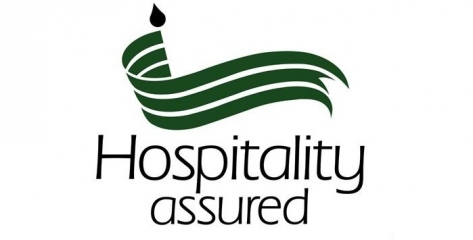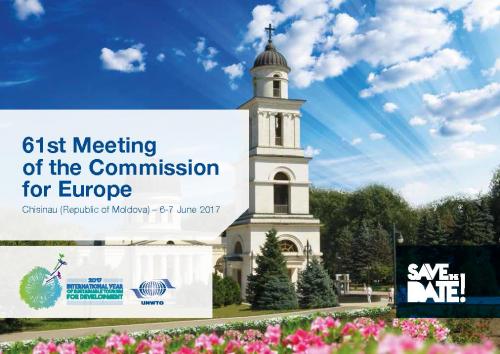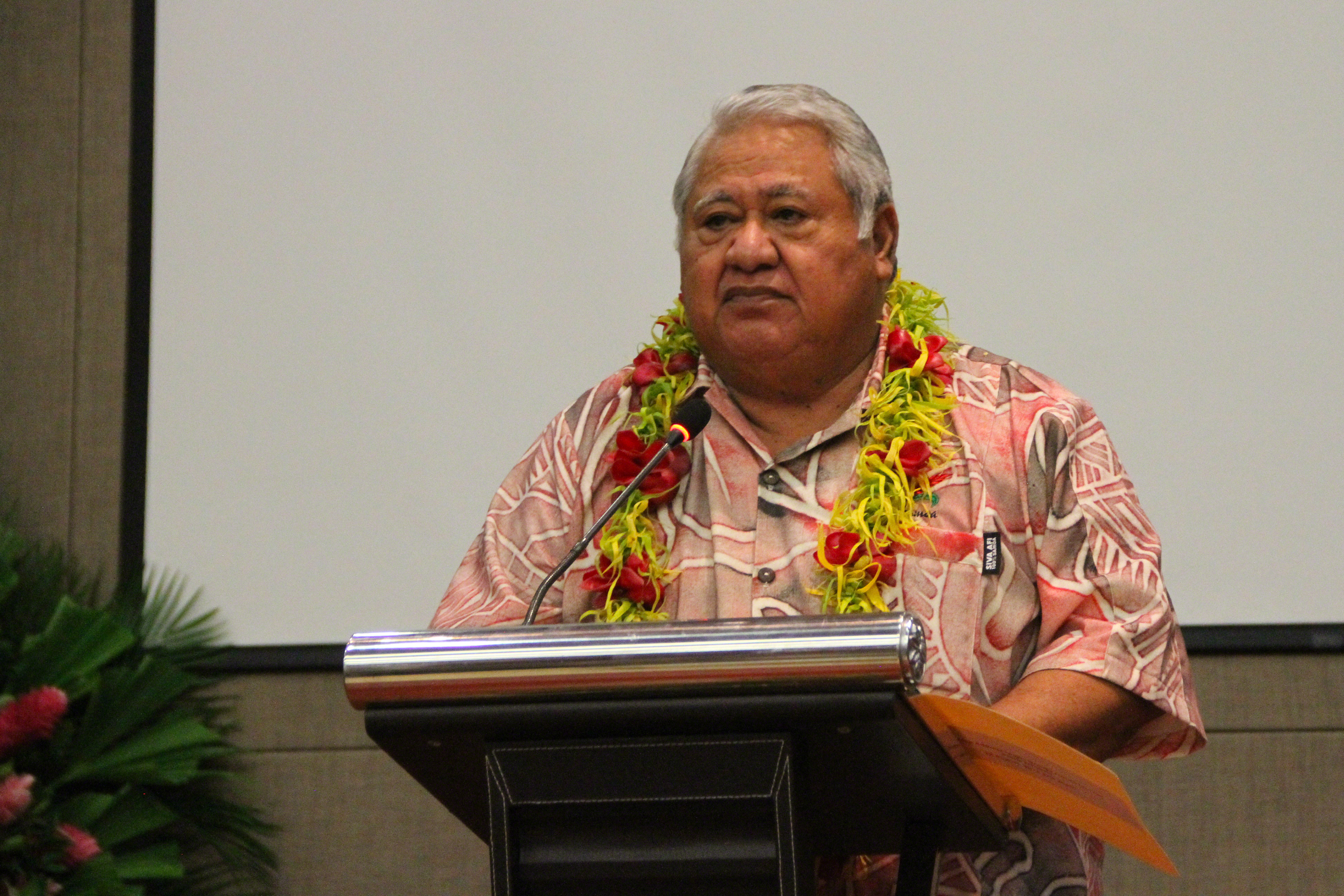

UNWTO Statement on the process of election for the post of Secretary General of the World Tourism Organization for the period 2018-2021
WorldTourismWire is standing by its previous articles and will continue to inform readers about relevant issues in regards to the Secretary General election process.
The United Nations World Tourism Organization requested to have this statement published in its full content.WorldTourismWire welcomes any statement, information or clarification by UNWTO or any party with relevant concerns.
The UNWTO Statement reads:
In view of the various articles published by eTN in recent weeks on the process of election of a nominee for the post of Secretary-General of the World Tourism Organization (UNWTO) for the period 2018-2021, UNWTO would like to state the following:
- The process of election of a nominee for the post of Secretary General of the World Tourism Organization (UNWTO) for the period 2018-2021 that took place at the 105th Session of the UNWTO Executive Council on 12 May 2017 in Madrid, Spain, was conducted in full observance of the Organization’s Statutes and Rules of Procedure, including the Presentation by the Candidates, the Restrictive Private Meeting for discussion of the Candidates and the Normal Private Meeting for vote by secret ballot.
- The various statements published by eTN are not only inaccurate but highly defamatory.
- As per the UNWTO Statutes and Rules of Procedure, the 105th Session of the UNWTO Executive Council selected one nominee to the post of UNWTO Secretary-General (Mr Zurab Pololikashvili of Georgia). The recommendation of the Executive Council of the one nominee will be submitted to the 22nd Session of the UNWTO General Assembly for his appointment to the post of Secretary-General in accordance with Article 22 of the UNWTO Statutes.
In the name of truth and accuracy, UNWTO requests eTN to publish the above statement in its full content.
Madrid, 12 June 2017

CTO helps to strengthen the business performance and overall competitiveness of tourism enterprises in its member countries with Hospitality Assured
BRIDGETOWN, Barbados (12 June, 2017) – As part of an on-going partnership with the Caribbean Tourism Organization (CTO) and its Hospitality Assured (HA) certification programme, the European Union under its Competitiveness of Small and Medium-sized Enterprises (COSME) programme last month hosted an HA Business Advisor Training Workshop at the Curaçao Chamber of Commerce in Punda, Williemstaad, Curaçao. Participants came from the Curaçao Tourist Board, the Curacao Innovation & Technology Institute; and Creating Milestones, a management solutions company.
The main objectives of the workshop were:
• To provide participants with an overview of the HA standards and processes and awareness of the Business Excellence framework;
• To enable participants to manage and advise on the HA processes for client organisations which will enable these organisations to progress on their journey to excellence and to obtain HA certification;
• To provide participants with a knowledge and understanding of the evidence requirements of Hospitality Assured; and
• To provide participants with an opportunity to develop gender sensitive advisory approaches through the employment of case studies and role-play.
CTO began its journey with HA in 2007, seeking to strengthen the business performance and overall competitiveness of tourism enterprises in the Caribbean. CTO is in the process of building a network of advisors and assessors in member countries which are already involved in the HA programme – including Antigua & Barbuda, The Bahamas, Barbados, Belize, Dominica, Grenada, Jamaica, Trinidad & Tobago, St. Kitts & Nevis, and St. Vincent & the Grenadines — and is also seeking to extend the scheme to countries which have not yet started to roll out the programme but have indicated an interest in doing so this year. These include Anguilla, British Virgin Islands, Curaçao, Guyana, Montserrat, Saint Lucia and The Turks & Caicos Islands.
The HA programme endeavours to promote a culture of quality, service excellence and continuous improvement, through the use of a business improvement tool and framework that is internationally recognized, as a means to support customer service delivery in tourism enterprises.
The first task of the HA Programme for Curaçao was to train Business Advisors and to equip them with the knowledge, skills and attitudes necessary to work effectively with organisations and lead them through the detailed HA self-assessment process towards certification.
A series of introductory presentations delivered by the facilitators, Norma Shorey-Bryan and Sharon Banfield-Bovell, provided participants with a background to the HA programme, perspectives on the issues and challenges faced in the tourism sector in the Caribbean, and detailed information on what was required on the HA Journey to Excellence. Focus was also placed on helping participants to understand issues related to gender and gender sensitive advisory approaches in dealing with the HA clients. These discussions on gender came to the forefront in the case studies discussions and role plays that were part of the learning and feedback sessions.
The interactive approach used throughout the workshop was designed to encourage participants to share their experiences, perspectives and concerns, and to learn from each other. Presentations stimulated lively group discussions, which helped participants consider how to apply the concepts taught when working with client organisations in Curaçao. The workshop sessions included: presentations on fundamental topics like What is Excellence, Vision & Values, Business Planning Processes and Sharing Good Practices; introduction to each of the nine steps of the HA Model; role plays on case studies mirroring the operations in various types of tourism businesses; and other learning exercises linked to each of the nine steps.
By the end of the workshop, the participants had gained a deeper understanding of the structure of the HA framework and were aware of the key themes of Hospitality Assured. The detailed knowledge and understanding will be further taken in as they apply the model to real life situations as they work with small, medium and large sized businesses in Curaçao’s tourism and hospitality sector.
About Hospitality Assured
Hospitality Assured is an internationally recognized certification, owned by the Institute of Hospitality in the U.K., managed and operated by the Hospitality Limited U.K. trading as Hospitality Assured and licensed by the Caribbean Tourism Organization (CTO) for use in the Caribbean as “The Standard for Service and Business Excellence in Caribbean Tourism.”
About the Caribbean Tourism Organization
The Caribbean Tourism Organization (CTO), with headquarters in Barbados and offices in New York and London, is the Caribbean’s tourism development agency comprising membership of the region’s finest countries and territories including Dutch, English, French and Spanish, as well as a myriad of private sector allied members. The CTO’s vision is to position the Caribbean as the most desirable, year round, warm weather destination, and its purpose is Leading Sustainable Tourism – One Sea, One Voice, One Caribbean.
Among the benefits to its members the organization provides specialized support and technical assistance in sustainable tourism development, marketing, communications, advocacy, human resource development, event planning & execution and research & information technology.
In addition the CTO, in partnership with the Caribbean Hotel & Tourism Association, jointly and equally owns the Caribbean Tourism Development Company, a marketing and business development entity dedicated to promoting the Caribbean brand worldwide.

Global tourism supports twice as many jobs as the financial sector, new WTTC research shows
According to a new report by the World Travel & Tourism Council (WTTC), the global Travel & Tourism sector directly sustains twice as many jobs as the financial sector, and five times as many jobs as the chemicals manufacturing sector.
The WTTC Benchmarking Report 2017 compares Travel & Tourism to eight other sectors, which are considered to have similar breadth and global presence, across 27 countries and six regions.
In 2016, Travel & Tourism supported 108 million jobs directly, and 292 million in total, taking the direct, indirect, and induced impact into account. The report shows that both on direct and total level, Travel & Tourism employs more people than the automotive manufacturing, banking, mining, chemicals manufacturing, and financial services sectors.
It also shows that the power of Travel & Tourism to create jobs is significantly higher than that of financial services when you compare their contribution to GDP. Financial services generates 19.4% of the world’s GDP compared to 10.2% by Travel & Tourism, but the latter supports twice as many jobs worldwide.
Travel & Tourism generated a total of USD$7.6 trillion in GDP in 2016, which makes the sector’s GDP contribution larger than that of banking (USD$4.8 trillion), mining (USD$5.0 trillion), agriculture (USD$5.8 trillion), automotive manufacturing (USD$6.1 trillion), and chemicals manufacturing (USD$6.5 trillion).
Global Travel & Tourism is forecast to grow by 4.0% per year over the next decade, which is significantly faster than the global economy at 2.7% and all other sectors covered in the study apart from the financial sector and banking.
On regional level when we look at total Travel & Tourism GDP and employment generated in 2016 benchmarks as following to the other eight sectors researched in this report:
• Africa: USD$166 billion in GDP and 20.7 million jobs in 2016, making the sector larger than chemicals manufacturing, automotive manufacturing and banking in terms of GDP contribution, and all of these sectors as well as financial services in terms of jobs.
• Americas: USD$2.2 trillion in GDP exceeds that of every sector included in this study except for the construction, financial services, and retail sectors in the Americas. The 42.7 million jobs makes the sector larger than banking, chemicals manufacturing, automotive manufacturing and mining in terms of job creation.
• Asia Pacific: USD$2.3 trillion in GDP makes the sector larger than that of Asia’s mining sector. The 159.2 million supported jobs exceeds the impacts of banking, mining, automotive manufacturing and financial services.
• USD$2.0 trillion in GDP makes the sector larger than mining, agriculture, banking, chemicals manufacturing, and automotive manufacturing in Europe. The 36 million jobs exceeds that of automotive manufacturing, mining, chemicals manufacturing, banking and financial services.
• Middle East: USD$227 billion in GDP exceeds that of the Middle East’s automotive manufacturing, agriculture, banking, and chemicals manufacturing sectors. The 5.7 million supported jobs are larger than that of the automotive manufacturing, banking, financial services, chemicals manufacturing and mining.
David Scowsill, President & CEO, WTTC, said: “It is easy to applaud the efforts or even to criticise the failings of Travel & Tourism in isolation without looking at the picture of our industry separate from the overall industrial context. Our sector contributes 10.2% of global GDP and supports 1 in 10 jobs when you look at the total impact and this research helps to put these achievements in context, and gives a clear picture as to the strength of Travel & Tourism.
Business and leisure travel creates opportunities, empowers communities and enhances local livelihoods. There are still challenges to sustainable growth, and WTTC will continue to urge public and private sector to invest into our sector and implement policies that are favorable for growth while safeguarding the world’s assets.”

Moldova hosts the 61st Meeting of the UNWTO Commission for Europe
Over 30 countries and Affiliate Members of the World Tourism Organization (UNWTO) gathered last week in Chisinau, the capital city of the Republic of Moldova, for the 61st Meeting of the UNWTO Commission for Europe. Participants discussed the priority areas for the Organization as well as strategies to position the tourism sector as a key driver of sustainable development in Europe (6 June 2017).
The meeting dedicated special attention to the need to continue enhancing UNWTO’s work on the promotion of safe, secure and seamless travel. UNWTO has recently launched a High Level Tourism and Security Task Force to advance this issue. The Member States expressed their condemnation of the recent terrorist attacks in Europe, and a minute of silence was held in memory of the victims.
An authentic and unexplored gem in European tourism, whose wines are appreciated and renowned worldwide, the Republic of Moldova has demonstrated a strong commitment with sustainable tourism. “The Republic of Moldova is still an emerging tourist destination, but has all the potential to become a must-see destination; the demonstrated commitment to sustainable development of tourism will ensure that the country reaps all the rewards that tourism has to offer.” said UNWTO Secretary General, Taleb Rifai.
UNWTO Secretary-General Taleb Rifai met the Prime Minister of the Republic of Moldova, Pavel Filip, to discuss the role of tourism in the socio-economic development of the country. The meeting underlined the importance that Moldova is giving to the tourism sector in the country’s economy.
“We are convinced that tourism is a key tool for Moldova to achieve sustainable growth and job creation, and indeed to help us achieve the Sustainable Development Goals (SDGs). This meeting will undoubtedly help us to support our tourism sector in achieving its potential” said Stanislav Rusu, Director General of the Tourism Agency of the Republic of Moldova.
UNWTO’s Commission Meeting also reviewed the work of the Organization’s technical committees on Competitiveness, Sustainability and Statistics and Tourism Satellite Account (TSA), and the activities of Member States to celebrate the International Year of Sustainable Tourism for Development 2017. Further items on the agenda included the transformation of the UNWTO Global Code of Ethics into an international convention, the creation of national committees on tourism ethics and the priorities of UNWTO’s Programme of Work for 2018-2019.
The Meeting was completed with an Official Event of the International Year of Sustainable Tourism for Development 2017 showcasing initiatives developed in Italy and France – Ecobnb (http://ecobnb.com) and Betterfly Tourism (http://www.betterfly-tourism.com) and a tree planting ceremony with the presence of UNWTO Secretary-General, the Director General of the Tourism Agency of the Republic of Moldova, the Head of the EU Delegation to Moldova, Pirkka Tapiola, and the diplomatic community of Moldova.
Hungary was nominated to host the official celebrations of World Tourism Day 2018 and the Member States welcomed the Czech Republic’s candidacy to hold the 2019 UNWTO Regional Commission meeting. Both decisions will be taken to the UNWTO General Assembly and the Regional Commission for Europe, respectively, in September in Chengdu, China.

Prime Minister of Samoa appointed Special Ambassador of the International Year of Sustainable Tourism for Development by UNWTO during the Ocean Conference
The World Tourism Organization (UNWTO) has appointed the Prime Minister of Samoa, Hon. Tuilaepa Sailele Malielegaoi, as Special Ambassador of the International Year of Sustainable Tourism 2017. The ceremony took place in New York on 7 June on the side-lines of the UN Ocean Conference, where among other activities the Prime Minister addressed participants on the value of tourism to sustainably advance the blue economy.
“The designation of 2017 as the International Year of Sustainable Tourism for Development was due to the recognition by the United Nations of the potential of the tourism sector to contribute to the fight against poverty, to help curb climate change, promote gender equality and foster mutual understanding and peace amongst diverse cultures” said the Prime Minister.
“Tourism is a sector that is vital to the livelihoods of our people and touches all the three dimensions of sustainable development, the social, economic and environmental aspects. As a people-to-people activity, it has helped and continues to contribute to the revitalization of our culture, customs and traditional crafts, and plays a pivotal role in the preservation of our cultural heritage and is a force that promotes peace and understanding” he added.
“The International Year is a unique opportunity to promote common action and enhance the power of tourism to build a better world. We thank Samoa for leading the initiative for the adoption of the UN resolution declaring the International Year and for its sustained, exemplary contribution in promoting the value of our sector towards the achievement of the 2030 Development Agenda, particularly for the Small Islands Developing States (SIDS)” said UNWTO Secretary-General, Taleb Rifai.
The Special Ambassadors of the Year are leaders and prominent personalities committed to promote the role and contribution of tourism in the achievement of the Sustainable Development Goals (SDGs) and the 2030 Agenda.
While tourism is included in three of the SDGs – SDG 8: ‘Promote sustained, inclusive and sustainable economic growth, full and productive employment and decent work for all’; SDG 12: ‘Sustainable Consumption and Production’ and SDG 14: ‘Conserve and sustainably use the oceans, seas and marine resources for sustainable development’, it can advance all 17 SDGs.
The Ocean Conference was an opportunity to highlight how tourism can effectively contribute to Goal 14. UNWTO joined the World Bank and the UN Department of Economic and Social Affairs (UNDESA) to discuss and launch the report ‘The Potential of the Blue Economy: Increasing Long-term Benefits of the Sustainable Use of Marine Resources for Small Island Developing States and Coastal Least Developed Countries’.
UNWTO was also co-organizing a Side Event on the “European Union tourism committed to Blue Growth” on the 8 June with DG MARE and NECstour. Coastal and Maritime Tourism is one of the key sectors of the European Union Blue Growth Strategy with a high potential for sustainable jobs and growth. Tourism employs over 3.2 million people and generates a total of 183 billion Euros in gross value added, representing over one third of the maritime economy. The universal dimension of the SDGs provides the EU regions with the opportunity to show leadership and share best practices to extend and scale up their Blue Growth strategy in other parts of the world, and in particular through their island territories in SIDS regions.
